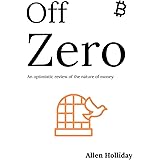Elon Musk’s Vision: Why Cryptocurrency Might Be the Cash of the Future
Imagine a world where physical cash, once king, is increasingly obsolete. Pockets feel lighter, and transactions are effortlessly managed through digital means. This evolving landscape is exactly what was explored in the video above, featuring insights from tech visionary Elon Musk. Here, a compelling case is made for cryptocurrency‘s potential to become the “cash of the future,” particularly in bridging the gap between regulated and less-regulated economic activities.
The Evolving Financial Landscape: Traditional Banking Under Threat
The traditional banking industry has long been considered a bedrock of the global economy. Yet, as Sankar observes in the discussion, while software has revolutionized many sectors, banking has, in some respects, lagged. However, this inertia is steadily being challenged. Elon Musk readily points to companies like Stripe, which are incrementally disrupting established financial institutions.
It is often seen that the established order struggles to adapt at the pace of technological innovation. Fintech companies, with their agility and focus on user experience, are introducing new paradigms for payments and financial services. The question is not if, but when, these pressures will lead to a more fundamental transformation. A future where core banking services are delivered through entirely new, decentralized models is frequently speculated upon, compelling existing banks to innovate or risk being sidelined.
Navigating Bitcoin: A Nuanced Perspective from Elon Musk
When questioned about his stance on Bitcoin, Elon Musk’s response is often characterized by a measured neutrality: “I’m neither here nor there on Bitcoin, you know.” This position often puzzles those who associate him with cutting-edge technology and digital innovation. While Satoshi Nakamoto’s white paper is acknowledged as “pretty clever,” a distinction is made between Bitcoin’s role and a broader vision for a primary global database.
Bitcoin’s design, while groundbreaking in its decentralization and security, faces certain challenges. These include scalability concerns and transaction speeds that, for some, may not meet the demands of a high-volume global payment system. Furthermore, the energy consumption associated with its proof-of-work mechanism has often been a point of contention. Thus, while Bitcoin undeniably laid the foundation for the entire cryptocurrency ecosystem, its specific architecture might not align with all the requirements for a universally adopted digital cash, in the eyes of some prominent figures.
Unpacking the “Legal to Illegal Bridge” in Digital Currency
A fascinating and somewhat provocative insight shared by Elon Musk revolves around the necessity of a “legal to illegal bridge” for any effective form of cash. He argues that transactions occurring outside the bounds of the law, which vary significantly across countries, traditionally rely on physical cash. However, for cash to be a viable medium for these clandestine exchanges, it must also be used for legitimate transactions. Without this duality, it would simply be an isolated “darknet” currency, making it impractical for daily life.
This concept suggests that the utility of a currency for illicit activities is intrinsically linked to its acceptance in the legitimate economy. Imagine if a currency could only be used for illegal purchases; how would one then convert it to buy food, housing, or other necessities? This fundamental linkage is where cryptocurrency is seen as potentially stepping in. As physical cash becomes harder to use and is phased out in many places, a digital alternative capable of facilitating both legal and quasi-legal transactions could naturally emerge to fill this functional void.
The Decline of Physical Cash and the Rise of Digital Alternatives
The observation that “cash these days is used just much rarer” is increasingly evident across the globe. There are many places where using cash is either inconvenient or simply not possible. This trend is driven by several factors, including the widespread adoption of digital payment systems, the convenience of card and mobile payments, and security concerns associated with carrying large amounts of physical money. In some economies, the move towards a cashless society is actively encouraged by governments.
This progressive marginalization of physical cash creates a vacuum. Historically, cash has provided a level of anonymity and untraceability that traditional digital banking transactions do not. As cash disappears, there is a “forcing function” for transactions that require privacy—whether legal, quasi-legal, or entirely illegal—to find an alternative. It is within this context that certain cryptocurrencies are viewed as offering a viable successor, providing a digital means of exchange that can operate with a similar level of discretion, yet also interface with the broader digital economy.
Cryptocurrency as a Cash Replacement, Not a Primary Database
A crucial distinction is made: cryptocurrency’s prospective role is envisioned as a replacement for cash, not as the “primary database” for all financial activity. This differentiation is significant. Replacing cash implies providing a medium of exchange that can facilitate direct, peer-to-peer transactions, often with a degree of privacy, much like physical money.
However, being a “primary database” would imply a role akin to a global financial ledger, managing every single aspect of economic life, from property titles to complex financial instruments, which is a much broader and more intricate function. While blockchain technology, which underpins many cryptocurrencies, has the potential to serve as a distributed ledger for various applications, its immediate and most pressing utility, as per this perspective, is seen in filling the transactional gap left by disappearing physical cash. The challenges of scalability, regulatory integration, and energy consumption for a truly global, primary database are considerably more complex than for a specialized digital cash substitute.
Regulatory Landscape and the Future of Digital Cash
The discussion concludes with a reflection on governmental regulation, particularly the sentiment that “governments just have too many laws about they shouldn’t they shouldn’t have so many things that are illegal.” This touches upon the complex relationship between innovation, individual freedom, and state control. The advent of cryptocurrencies presents a profound challenge to existing regulatory frameworks, which were largely designed for centralized financial systems.
The decentralized, global nature of many digital currencies means that national borders and traditional legal jurisdictions become less distinct. This creates a difficult balancing act for policymakers: how to foster innovation and protect consumers without stifling technological progress or imposing overly restrictive controls. The debate over what should be considered “illegal” in the digital age, particularly concerning financial privacy and transaction freedom, is ongoing and will undoubtedly shape the future trajectory of cryptocurrency as the cash of the future.







